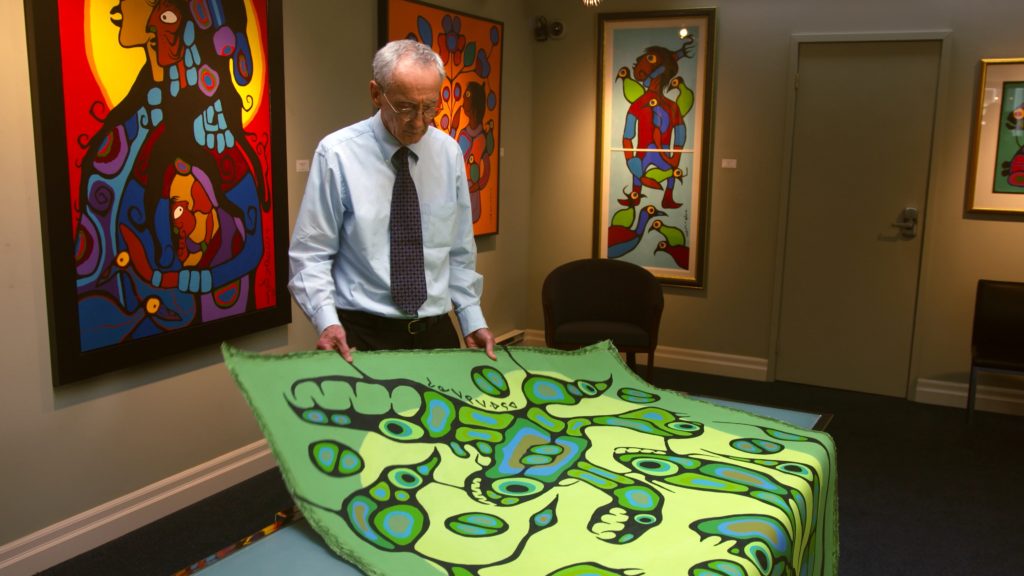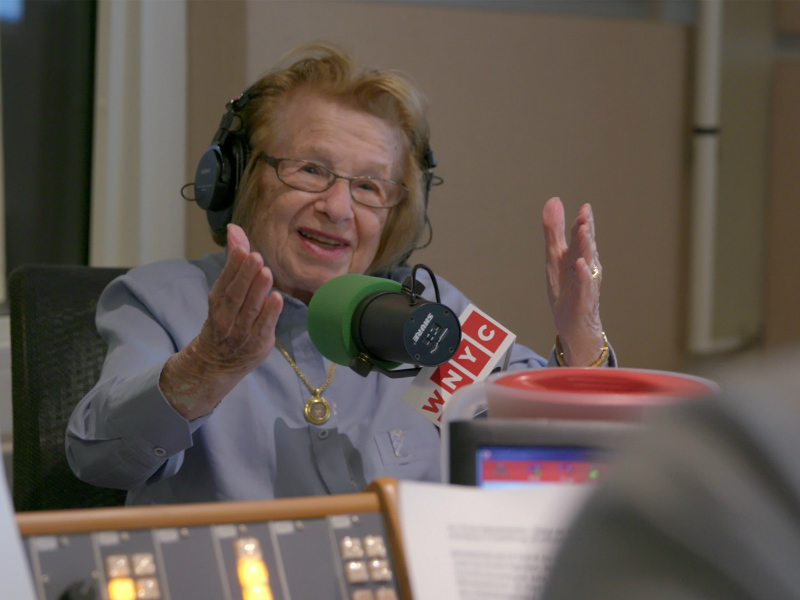This year’s Hot Docs Film Festival offers a good amount of Jewish content, especially from prominent and rising Canadian-Jewish filmmakers. While Israel appears to be depicted in a less than favourable light, the inclusion of several stories of Holocaust survivors, as well as broad representation of Jewish directors, is a promising celebration of Jewish diversity of life.
Here are this year’s most Jewish films.

Marek Edelman… and There Was Love in the Ghetto
One of the leaders of the Warsaw Ghetto Uprising, Marek Edelman devoted his life to justice in his home country, Poland, where he spent much of his life locking horns with the postwar communist government and working as a renowned cardiologist. Before Edelman died in 2009, however, Polish director Jolanta Dylewska spent hours interviewing him. This film, drawing from that footage and archival findings, tells the story of a lesser-known side of the Holocaust: the importance of romance. After all, if the light went out in their lives, the survivors may not have made it out alive.

Ask Dr. Ruth
On the topic of romance and tragedy, Ask Dr. Ruth is a touching and personal documentary of the famous 90-year-old survivor and sex therapist. Director Ryan White probes into Dr. Ruth’s personal life, which she keeps ironically quiet about – ironic given her outsized persona and frank sexual advice. White dives into how her struggles as a survivor affected and inspired her career path, splicing scenes from her 21st-century life with archival footage from her heyday in the late 1980s and early 1990s.
READ: DR. RUTH: ON THE HOLOCAUST, THE INTERNET — AND SEX

Advocate
One of the marquee films at this year’s festival is Advocate, a portrait of Israeli human-rights lawyer Lea Tsemel, who has spent decades as a defence attorney for Palestinians accused of terrorism. Tsemel is an unabashed activist for the Palestinian cause, and the film examines the ways in which her domestically unpopular stance, since the 1970s, has irreparably damaged her relationships with family and friends. The film’s specific and controversial subject matter is matched in tone by Tsemel’s own personality: quiet, stubborn and passionate. Even if viewers disagree with her politics, the film looks like a must-see.

Propaganda: The Art of Selling Lies
This is a new film by Larry Weinstein, the Canadian-Jewish filmmaker who recently made CJN headlines for picking up a Canadian Screen Award for his film Dreaming of a Jewish Christmas. In his sprawling documentary about the history and evolution of propaganda, Weinstein draws a line from cave drawings to Renaissance art to Twitter feuds, connecting dots that enable the spread of misinformation to convince the minds of the masses. In a political era where emotions and blind partisanship frequently overrun logic, this film aims to clarify what should be defined as “fake news”.

My Father’s Son
The lone non-Palestinian Israeli work in this year’s roster, this short 30-minute film examines the bond between a shy son and his charismatic father, and looks at the ways in which that intimate relationship is holding the son back. There isn’t much information available about this film, but its Canadian premiere should make the list for any intrigued Israeli cinephiles.

Gaza
In all the headlines and newscasts about rockets fired into Israel and air strikes causing casualties in Gaza, outsiders rarely get to see what daily life is like in the cordoned-off strip. Enter Garry Keane and Andrew McConnell, whose new film introduces audiences to the regular folks trapped in the middle of the Gaza conflict – the students, cabbies and fishermen whose lives are defined by a reality they cannot change. The film allegedly does not debate the politics of the region, instead taking a humanist view of the people trapped there.

Pipe Dreams
One of the lighter offerings by Canadian-Jewish filmmakers this year, Stacey Tenenbaum’s Pipe Dreams follows the prestigious Canadian International Organ Competition, which garners contestants from across the world to Montreal’s Notre-Dame Basilica for a $100,000 prize. Striking a kind of chord between Spellbound and Glenn Gould, the film promises to be an enjoyable but intense 78 minutes that details the skill and diligence required to master the world’s largest instrument.

There Are No Fakes
Canadian-Jewish director Jamie Kastner partners with Barenaked Ladies’ keyboardist and art collector Kevin Hearn to understand a complex mystery about forgery in the world of Canadian indigenous art. Arguments over identity politics and artistic authenticity eventually lead the duo to the courtroom, where multiple art connoisseurs argue that their version of a famous Anishinaabe painter’s legacy is the true one, pointing fingers at each other as owning fakes. The film asks several pertinent questions, largest among them: can any one person own an artistic legacy?

Marceline. A Woman. A Century
This intimate, hour-long portrait of Marceline Loridan-Ivens, an Auschwitz survivor who became a French counterculture icon before dying last year at the age of 90, reflects on her life as a documentary filmmaker. She had fizzy, bright red hair until her final days, and her filmography spanned some of the most significant cultural moments of the mid-to- late 20th century, including the Algerian War of Independence, the Vietnam War and China’s Cultural Revolution. (The latter of those served as the backdrop for her 763-minute-long documentary, How Yukong Moved the Mountains, which remains one of the longest films ever made.) This quiet portrait of an artist resonates deeply among homages to our disappearing survivors.
